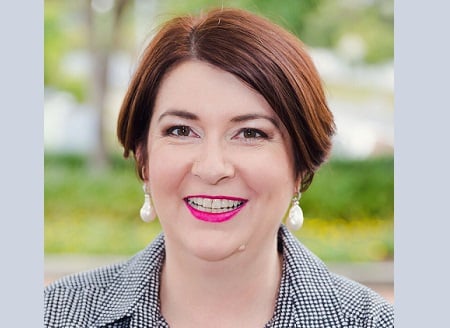

Brokers are regularly tasked with helping clients through a stressful claims process but some cases are significantly more challenging than others and can even impact the wellbeing of those involved.
Mandy (pictured above) and Robert Cooper (pictured below) are both directors at Queensland-based CPR Insurance Services – having steered several clients through highly-emotional claims, they’re now heavily invested in reducing the stress suffered by insureds.
Mandy, who has more than 20 years’ experience in both broking and underwriting, says one of her most distressing cases came after a small business had its claim denied by the insurer and was forced to pursue the matter all the way to the Supreme Court.
“The insured won but it was hard to watch our client go through the financial strain the claim placed on the business,” she told Insurance Business.
“I spoke to the client daily for 12 months, I supported her when her husband had a breakdown and I supported her through all the stress along the way,” continued Cooper. “I no longer consider them clients but they are friends.”
Tragically, Mandy attended the funeral of her client’s father-in-law just a few weeks ago – even that, she said, seemed related to the insurance battle.
“He started the business that my client now runs,” explained Mandy. “I have no idea the emotional toll had on speeding up his death, but I do sometimes wonder. How do we prove the stress contributed? It is very subjective, but the strain on that close family was horrible.”
It’s by no means the only upsetting case CPR has dealt with – after Cyclone Debbie, another client with a regional business entered significant hardship and the entire senior management team suffered as a result.
“There were 27 families hanging off the back of this business and they were teetering each month waiting for next payment to come in,” said Mandy. “They are recovering now but the strain of living pay-to-pay and wondering how the business was ever going to support these families in a regional community was very stressful for the management team.”
Robert Cooper, who has close to 40 years’ experience in the industry, says he too has helped clients through severe emotional stress – particularly in the professional indemnity area in which he specialises.
.jpg)
“The mere fact that a client can make an allegation of an act, error or omission against an insured professional is often taken to heart by a small business operator,” he tells Insurance Business. “It varies from anger to self-doubt about their competency. Sometimes they talk about giving it all up and closing the business. They valued their self-confidence so much and now someone is threatening to sue them for ‘millions of dollars’.”
His advice to brokers who find themselves in such a situation is to listen carefully before trying to put the situation into perspective.
“This will include the process we follow and the ‘what ifs’ it goes a particular way,” he says. “Most of my clients have so much pride in their work, they deserve to be listened to and appropriately assisted.”
While brokers aren’t required to undergo any formal training on helping clients through times of high stress, Mandy doubts success would be possible for those who can’t relate on an emotional level.
“Brokers often have no formal training, but empathy is a critical part of a good broker,” she told Insurance Business. “Without empathy or the ability to walk in the clients shoes, you will never be a good broker. Good brokers care about their clients.”
Robert agrees empathy is vital for any broker – both to see the situation from their client’s perspective and to be effective in their day-to-day role.
“We need to learn to listen to our clients, use empathy and people skills in the whole broker process, not just on claims,” he said.
However, with relatively little training, some brokers may be asking themselves what they should be doing to ensure they’re supporting their clients as best as possible.
Mandy, who is also trained as a volunteer counsellor, says the firm always tries to be on the front foot for its clients.
“With the large Cyclone Debbie claim, I would often check in with the client each week to check on cashflow,” she revealed, noting that she would regularly ask questions such as; do you need another progress payment this week? Would another $50,000 help this week? Can you wait until the insurer reviews the next progress report, which could be two weeks?
“I think for the client to know we knew it was hard and we were pulling out all stops to keep the money coming in while they purchased parts for repairs (and the money they were paying out in advance for parts and repairs was large) made them feel like we had their back,” she said.
“As a broker we should always act in our clients’ best interests and that also means supporting them when there is a claim to keep it moving as fast as possible to get the client back on their feet.”
